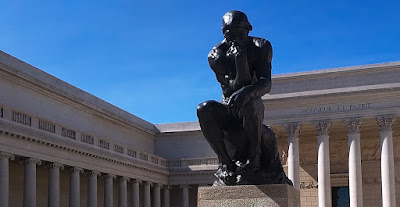Serve God with the Matchless Wisdom of Solomon
[This post originally appeared here with the title: Wise As Solomon. I wrote it as a guest blogger for Liz Petruzzi. Be sure to visit her site and enjoy her heartfelt blog.]
Wisdom was nicely packaged
along with a dreamy and delectable fruit dangling from a forbidden tree. At least, that’s how it seemed for the woman…
No, this isn’t the opening
lines of a romance novel. It’s our
history. It’s the framing of an eternity
apart from God when you spin it from a crafty serpent’s vantage point. But the fruit was supposed to be looked upon
with reverence and awe toward God, the Creator, by anyone who fears Him.
We can read about this fruit in Genesis 2 and 3 and recall
the passing of events that determined the fate of humankind. A universal death sentence, all because
someone aspired toward something good (wisdom), but in a way that dismissed a
required reverence toward God. And Adam
continued to dismiss his fear of God as he tried to cover up his sin and hide
from His Creator.
The fear of the LORD is the beginning of wisdom,
and the knowledge of the Holy One is understanding.
Proverbs 9:10
The fear of the LORD is
the beginning of knowledge,
but fools despise wisdom and instruction.
Proverbs 1:7
King
Solomon wrote most of the Proverbs. He had
“wisdom and very great insight, and a breadth of understanding as measureless
as the sand on the seashore. Solomon’s
wisdom was greater than the wisdom of all the people of the East, and greater
than all the wisdom of Egypt” (1 Kings 4:29-30). How did he become so wise…and how can we tap
into that wisdom?
How did Solomon
obtain matchless wisdom?
The short
answer: He asked God for it.
Give me wisdom and
knowledge, that I may lead this people.
2 Chronicles 1:10a
He asked
God, but there was more to his request than a simple prayer. His petition was accompanied by godly
character and practices.
He lived his life with a
heart of worship, humility, and submission.
Before Solomon
was known for his matchless wisdom…he was known by his heart of worship
Solomon
was the most wealthy, powerful, and magnificent king the world had ever
known. Yet his focus was not on those
things that wealth, power, or magnificence can summon. His focus was on His God and the first thing
he did after establishing himself as king was worship. He didn’t use his position to elevate
himself. He used it to worship God and
to lead all of his officials to do the same.
This was very intentional as they traveled 7 miles together, bringing
with them 1,000 sacrifice-worthy animals to perform 1,000 burnt offerings. It was an extended, large-scale, corporate
event that was an expression of Solomon’s heart of worship. (See 2 Chronicles 1:1-6.)
Why is
worship so important in acquiring wisdom?
Chip Ingram framed it nicely as he referred to Isaiah 6:1-7:
“First, worship brings an upward look, a glance at God on
His throne in all His glory. It
refocuses our view of God. It pulls our
affections off our idols and puts them onto God. It causes us to remember how good He is, how
big, kind, powerful, and loving He is, and how holy He is.”
“Second, worship brings an inward look. When you see God for who He really is, as
Isaiah did, you start to see yourself for who you really are. You start seeing things in your heart and in
your life that really didn't bother you before.
But notice that after Isaiah saw and confessed his sinfulness, he also
experienced the mercy, grace, and forgiveness of God. That's what happens when you really worship.”
Through
worship, we see God for who He really is, and we see ourselves for who we
really are. Proper perspective of our
relationship to God produces humility – true humility, not false piety.
Before
Solomon was known for his matchless wisdom…
he viewed life’s questions
through a lens of humility
When God
asked the big question, “What can I give you?,” Solomon recounted what God had
done for his father and for him. He appreciated
Him. He worshiped Him. He paid tribute to Him. Then he humbly asked for wisdom. He said, “…who is able to govern this great
people of yours?”
If God
asked us, “What can I give you?,” how would we respond? I would stutter, at first, then stutter some
more. And even if I took the time to
write my response, I’m afraid wisdom may not stack up against the other things
I care about.
But in
humility, Solomon looked inward and upward.
Notice his humble heart in 2 Chronicles 1:8-10:
·
He
acknowledged God’s love for David
·
He
acknowledged God’s appointment of himself as king
·
He
understood that God is LORD
·
He
understood that he and David received their notoriety from God
·
He
understood that leadership is not about human lordship
·
He
approached his position as if the people are great, and not really himself
Solomon affirmed
God’s sovereignty and personal care before he petitioned Him. How often do we bless God instead of asking
Him to bless ourselves or our loved ones?
Even Solomon’s petition was for the benefit of God and the people He
loves. It wasn’t necessarily for himself
or his family. His humility produced in
him a heart that yielded to God’s will and plan for himself. He was submissive to God.
Before
Solomon was known for his matchless wisdom…
he made decisions and took
actions with intentional submission to God
Humility broadens
our perspectives so that we recognize what is important to God and the needs of
those whom He loves. It encourages us to
look beyond ourselves, and to ask God what priorities need to be rearranged or
introduced anew. Humility leads to
submission – yielding to God’s will and plan for ourselves as individuals.
In addition
to yielding to God in corporate worship, 1 Kings 3:7-11 offers more about Solomon’s
submissive heart:
·
He
called the people God’s people
·
He
asked for a listening heart
·
He
wanted to do what is right
Solomon
requested wisdom so that he could be effective for Him. It was an unconditional request – expectant, yes,
but only because He knew God would not abandon a yielded heart. Solomon had it all, yet his focus was on His
God. He didn’t bask in his riches or
glory. He didn’t boast of his prominence
or lord it over people. He lived for
God, did what was right, and governed with wisdom and understanding (2Chronicles 1:12-13).
Oh, how I
fall short of this.
Solomon ruled
with matchless wisdom. We
can serve God with the same wisdom, because the wisdom was not Solomon’s. It was God’s – made available to him through
his heart of worship, humility, and submission. If we have hearts like Solomon’s, God will achieve
the milestones He laid specifically for each of us.
Do we
want to serve God with matchless wisdom?
Do we
worship God in our everyday lives?
Do we consider others better than ourselves?
Do we put God’s priorities before our own?
Do we sacrifice for Him?
Do we truly fear God?
Read more blog posts here.
THE HOLY BIBLE, NEW INTERNATIONAL VERSION®, NIV® Copyright ©
1973, 1978, 1984, 2011 by Biblica, Inc.® Used by permission. All rights
reserved worldwide.







